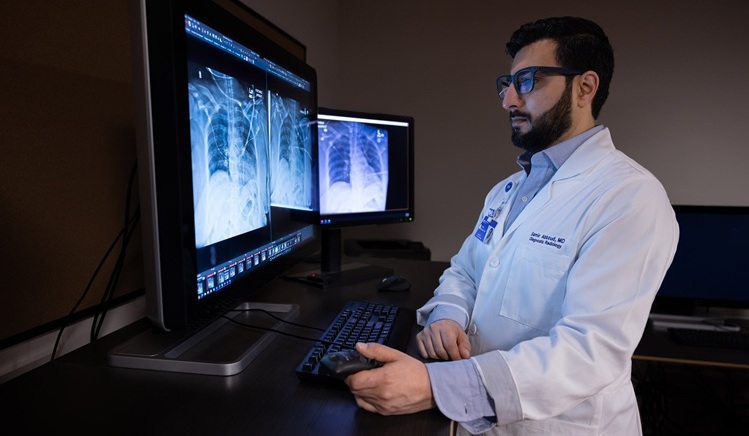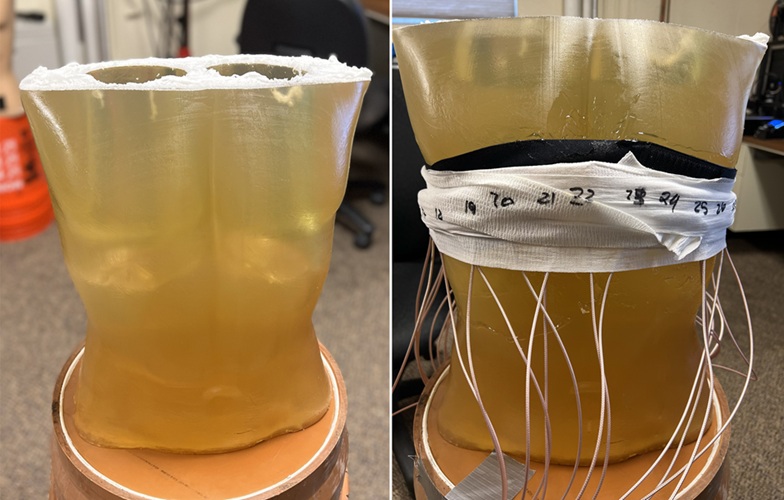Philips Acquires Clinical Information System Company
|
By MedImaging International staff writers Posted on 07 Oct 2010 |
Philips Healthcare (Best, The Netherlands) announced that it has agreed to acquire Wheb Sistemas (Blumenau, Brazil), a provider of clinical information systems (CIS) inn Brazil.
This acquisition marks the next step in the execution of Philips Healthcare's strategy to expand its clinical informatics range with solutions that increase its ability to meet the diverse and growing needs of the different markets around the world. It follows the March 2010 acquisition of Tecso Informatics (Rio de Janeiro), one of Brazil's leading radiology information systems (RIS) firms, and August 2010's agreement to acquire the business of CDP Medical, Ltd. (Kiriat Arie Petach Tikva, Israel), a provider of picture archiving and communication systems (PACS).
"The acquisition of Wheb, the third clinical informatics acquisition in recent months, is another important step on our journey to complete our global portfolio of clinical informatics and patient care solutions that simplify clinician workflow, improve financial outcomes for our customer and help improve and save lives,” said Steve Rusckowski, CEO for Philips Healthcare. "As with the other recent deals in this space, also the acquisition of Wheb helps us to further strengthen our offering especially geared towards facilitating high-growth markets such as Latin America.”
Founded in 1999, Wheb has approximately 190 employees and installations in more than 230 hospitals. Clinical informatics systems integrate information among various hospital departments (e.g., radiology, cardiology), and they serve an increasingly vital role in today's healthcare environment as the need to streamline workflow and manage costs, all while providing high-quality care, is universally chief in mind for governments, insurers, hospital administrators, and medical teams. Wheb will become part of Philips Healthcare's patient care and clinical informatics business.
The acquisitions of both Tecso and Wheb make Philips one of Brazil's leading clinical informatics companies. This enables Philips to bring specifically sophisticated clinical decision support to the Brazilian market. Philips has already expanded its healthcare business in this market in recent years with the acquisitions of Dixtal Biomédica e Tecnologia, a leading Brazilian manufacturer of in-hospital patient monitoring, in 2008 and VMI-Sistemas Medicos, a Brazilian imaging diagnostic company, in 2007.
Related Links:
Philips Healthcare
Wheb Sistemas
This acquisition marks the next step in the execution of Philips Healthcare's strategy to expand its clinical informatics range with solutions that increase its ability to meet the diverse and growing needs of the different markets around the world. It follows the March 2010 acquisition of Tecso Informatics (Rio de Janeiro), one of Brazil's leading radiology information systems (RIS) firms, and August 2010's agreement to acquire the business of CDP Medical, Ltd. (Kiriat Arie Petach Tikva, Israel), a provider of picture archiving and communication systems (PACS).
"The acquisition of Wheb, the third clinical informatics acquisition in recent months, is another important step on our journey to complete our global portfolio of clinical informatics and patient care solutions that simplify clinician workflow, improve financial outcomes for our customer and help improve and save lives,” said Steve Rusckowski, CEO for Philips Healthcare. "As with the other recent deals in this space, also the acquisition of Wheb helps us to further strengthen our offering especially geared towards facilitating high-growth markets such as Latin America.”
Founded in 1999, Wheb has approximately 190 employees and installations in more than 230 hospitals. Clinical informatics systems integrate information among various hospital departments (e.g., radiology, cardiology), and they serve an increasingly vital role in today's healthcare environment as the need to streamline workflow and manage costs, all while providing high-quality care, is universally chief in mind for governments, insurers, hospital administrators, and medical teams. Wheb will become part of Philips Healthcare's patient care and clinical informatics business.
The acquisitions of both Tecso and Wheb make Philips one of Brazil's leading clinical informatics companies. This enables Philips to bring specifically sophisticated clinical decision support to the Brazilian market. Philips has already expanded its healthcare business in this market in recent years with the acquisitions of Dixtal Biomédica e Tecnologia, a leading Brazilian manufacturer of in-hospital patient monitoring, in 2008 and VMI-Sistemas Medicos, a Brazilian imaging diagnostic company, in 2007.
Related Links:
Philips Healthcare
Wheb Sistemas
Latest Industry News News
- GE HealthCare and NVIDIA Collaboration to Reimagine Diagnostic Imaging
- Patient-Specific 3D-Printed Phantoms Transform CT Imaging
- Siemens and Sectra Collaborate on Enhancing Radiology Workflows
- Bracco Diagnostics and ColoWatch Partner to Expand Availability CRC Screening Tests Using Virtual Colonoscopy
- Mindray Partners with TeleRay to Streamline Ultrasound Delivery
- Philips and Medtronic Partner on Stroke Care
- Siemens and Medtronic Enter into Global Partnership for Advancing Spine Care Imaging Technologies
- RSNA 2024 Technical Exhibits to Showcase Latest Advances in Radiology
- Bracco Collaborates with Arrayus on Microbubble-Assisted Focused Ultrasound Therapy for Pancreatic Cancer
- Innovative Collaboration to Enhance Ischemic Stroke Detection and Elevate Standards in Diagnostic Imaging
- RSNA 2024 Registration Opens
- Microsoft collaborates with Leading Academic Medical Systems to Advance AI in Medical Imaging
- GE HealthCare Acquires Intelligent Ultrasound Group’s Clinical Artificial Intelligence Business
- Bayer and Rad AI Collaborate on Expanding Use of Cutting Edge AI Radiology Operational Solutions
- Polish Med-Tech Company BrainScan to Expand Extensively into Foreign Markets
- Hologic Acquires UK-Based Breast Surgical Guidance Company Endomagnetics Ltd.
Channels
Radiography
view channel
AI Radiology Tool Identifies Life-Threatening Conditions in Milliseconds
Radiology is emerging as one of healthcare’s most pressing bottlenecks. By 2033, the U.S. could face a shortage of up to 42,000 radiologists, even as imaging volumes grow by 5% annually.... Read more
Machine Learning Algorithm Identifies Cardiovascular Risk from Routine Bone Density Scans
A new study published in the Journal of Bone and Mineral Research reveals that an automated machine learning program can predict the risk of cardiovascular events and falls or fractures by analyzing bone... Read more
AI Improves Early Detection of Interval Breast Cancers
Interval breast cancers, which occur between routine screenings, are easier to treat when detected earlier. Early detection can reduce the need for aggressive treatments and improve the chances of better outcomes.... Read more
World's Largest Class Single Crystal Diamond Radiation Detector Opens New Possibilities for Diagnostic Imaging
Diamonds possess ideal physical properties for radiation detection, such as exceptional thermal and chemical stability along with a quick response time. Made of carbon with an atomic number of six, diamonds... Read moreMRI
view channel
New MRI Technique Reveals Hidden Heart Issues
Traditional exercise stress tests conducted within an MRI machine require patients to lie flat, a position that artificially improves heart function by increasing stroke volume due to gravity-driven blood... Read more
Shorter MRI Exam Effectively Detects Cancer in Dense Breasts
Women with extremely dense breasts face a higher risk of missed breast cancer diagnoses, as dense glandular and fibrous tissue can obscure tumors on mammograms. While breast MRI is recommended for supplemental... Read moreUltrasound
view channel
New Medical Ultrasound Imaging Technique Enables ICU Bedside Monitoring
Ultrasound computed tomography (USCT) presents a safer alternative to imaging techniques like X-ray computed tomography (commonly known as CT or “CAT” scans) because it does not produce ionizing radiation.... Read more
New Incision-Free Technique Halts Growth of Debilitating Brain Lesions
Cerebral cavernous malformations (CCMs), also known as cavernomas, are abnormal clusters of blood vessels that can grow in the brain, spinal cord, or other parts of the body. While most cases remain asymptomatic,... Read moreNuclear Medicine
view channel
New Imaging Approach Could Reduce Need for Biopsies to Monitor Prostate Cancer
Prostate cancer is the second leading cause of cancer-related death among men in the United States. However, the majority of older men diagnosed with prostate cancer have slow-growing, low-risk forms of... Read more
Novel Radiolabeled Antibody Improves Diagnosis and Treatment of Solid Tumors
Interleukin-13 receptor α-2 (IL13Rα2) is a cell surface receptor commonly found in solid tumors such as glioblastoma, melanoma, and breast cancer. It is minimally expressed in normal tissues, making it... Read moreGeneral/Advanced Imaging
view channel
CT Colonography Beats Stool DNA Testing for Colon Cancer Screening
As colorectal cancer remains the second leading cause of cancer-related deaths worldwide, early detection through screening is vital to reduce advanced-stage treatments and associated costs.... Read more
First-Of-Its-Kind Wearable Device Offers Revolutionary Alternative to CT Scans
Currently, patients with conditions such as heart failure, pneumonia, or respiratory distress often require multiple imaging procedures that are intermittent, disruptive, and involve high levels of radiation.... Read more
AI-Based CT Scan Analysis Predicts Early-Stage Kidney Damage Due to Cancer Treatments
Radioligand therapy, a form of targeted nuclear medicine, has recently gained attention for its potential in treating specific types of tumors. However, one of the potential side effects of this therapy... Read moreImaging IT
view channel
New Google Cloud Medical Imaging Suite Makes Imaging Healthcare Data More Accessible
Medical imaging is a critical tool used to diagnose patients, and there are billions of medical images scanned globally each year. Imaging data accounts for about 90% of all healthcare data1 and, until... Read more





 Guided Devices.jpg)







.jpeg)





